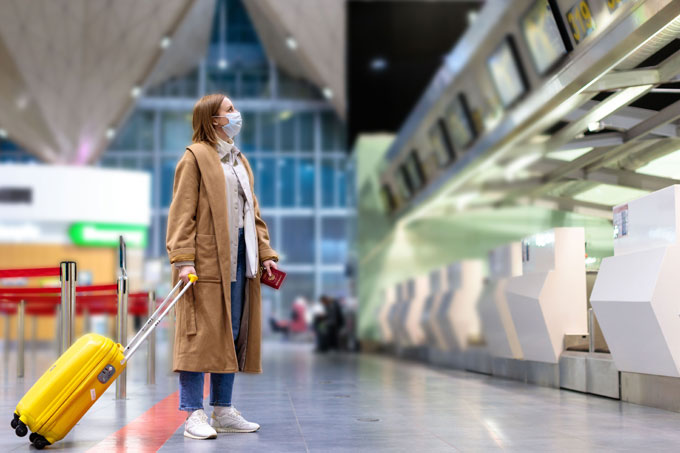As the ‘We’re Good to Go’ campaign seeks to build a ‘ring of confidence’ for the reopening tourism sector, and domestic visitors are encouraged to explore the best of British destinations this summer, Dr Karen Thomas, Dr Daniel O’Donoghue & Dr Julie Scott explore some of the stark realities facing businesses dependent upon international visitors and how this could impact more widely across regional economies of the UK.
Tourism and hospitality has continued to be reported as one of the sectors which have been hardest hit by the Covid-19 crisis. The easing of lockdown and the gradual reopening of many businesses at the heart of the visitor economy has been welcomed by many. A number of recent Government measures to support the sector, such as the reduced rate of VAT for hospitality, accommodation and attractions announced by the Chancellor in his Plan for Jobs, have provided a lifeline for many businesses. However, for a sector just starting to reopen mid-way through the season, most with significantly reduced capacity due to social distancing requirements, the path to recovery will be slow and, for the majority, dependent initially upon building consumer confidence amongst the domestic market. As UK consumers’ sentiment to consider an international trip this year remains low, according to VisitBritain’s latest Covid-19 Consumer Sentiment Tracking Survey (6-10th July) results – hopes for the early phase of recovery for the visitor economy are pinned on the value of domestic visitors exploring their own doorsteps and rediscovering the benefits of staycations.
This domestically-led recovery path will not, however, fully counterbalance the loss in income from the steep decline in international visitors to the UK this year, and offers little security to travel organisations whose business models are dependent on the inbound market.
VisitBritain reports on the scale of the inbound market which for 2019 was 40.9 million visits to the UK, accruing a visitor spend of £28.4 billion. The revised outlook for the UK, issued in early June by VisitBritain, forecasts a drop of 59% in terms of international visits, and 63% in spend – down to £10.6 billion. This forecast assumes a low level of international travel restarting in early July, with no second wave of covid-19 or upturn in the virus that would require any new national lockdown/quarantine measures.
The stark realities of this loss of inbound tourism for tour operators and destination management companies (DMCs) has been highlighted by the results of a survey by UKinbound, the leading trade association representing the interests of the UK’s inbound tourism sector. Based upon a survey of their tour operator and DMC members, the findings indicate that, without further Governmental support, 53% expect their businesses to last no more than 6 months, with 88% expecting to make between 25-100% of their workers redundant. As Joss Croft, Chief Executive of UKinbound comments, these “results unsurprisingly reinforce that those tourism businesses that rely wholly on international visitors for their livelihoods are on their knees and that the risk of widespread redundancies and the collapse of previously successful businesses is a very real threat without further Government support.”
The Composite Tourism and Hospitality Index, which was developed by the Tourism and Events Hub at Canterbury Christ Church University, as part of its recent research for the UKinbound commissioned Perfect Storm report, sheds further light on the vulnerability of particular regions of the UK to a downturn in the inbound tourism market, and its potential impact on jobs. The Index pinpoints areas with higher than average concentrations of workers in travel agencies and tour operators, especially in areas which are the base for large headquarters, or close to international airports.
However, compounding the direct impact on local labour markets as a result of significant job losses, is the indirect impact that a collapse in businesses, highly dependent on the inbound market, could have on the wider visitor economy and its supply chains. Such businesses, captured by the UKinbound survey, are instrumental in aiding the dispersal of international visitors around the regions of the UK, and play a significant role underpinning the government’s Tourism Sector Deal and growing the value of tourism outside of London. Whilst the uncertainties of the Covid-19 crisis require a complex balancing of health and economic recovery, and international travel will inevitably be impacted for some time to come, nevertheless, it will be crucial to the UK’s long-term recovery to maintain tourism business infrastructure and supply chains in place, ready for when international travel starts to recover in significant numbers. Whilst airlines have received significant media coverage, the UKinbound survey results shine a light on other vital sub-sectors which play a significant role in our tourism ecosystem.
Our analysis of regional tourism and hospitality workforce data identifying hotspots in key sub-sectors impacted by Covid-19, adds to the evidence that the impact of the crisis is not just playing out in the experiences of these organisations and their employees directly affected by it, but in the communities/regions that their economic viability supports and moreover, impacts the future ability for tourism to contribute to the recovery and resilience of these regions post-covid.
Read the research report, A Perfect Storm? The impact of the end of Free Movement on the UK tourism workforce .
‘A Perfect Storm? The impact of the end of Free Movement on the UK tourism workforce’ report was launched by UKinbound in October 2019. The Tourism and Events Hub, at Canterbury Christ Church University was commissioned by UKinbound to undertake and deliver the research. Its report authors are Dr Karen Thomas, Dr Julie Scott, Dr Jim Butcher, Dr Daniel O’Donoghue and Dr Lorna Thomas.
 Expert comment
Expert comment Jeanette Earl
Jeanette Earl 1940
1940


